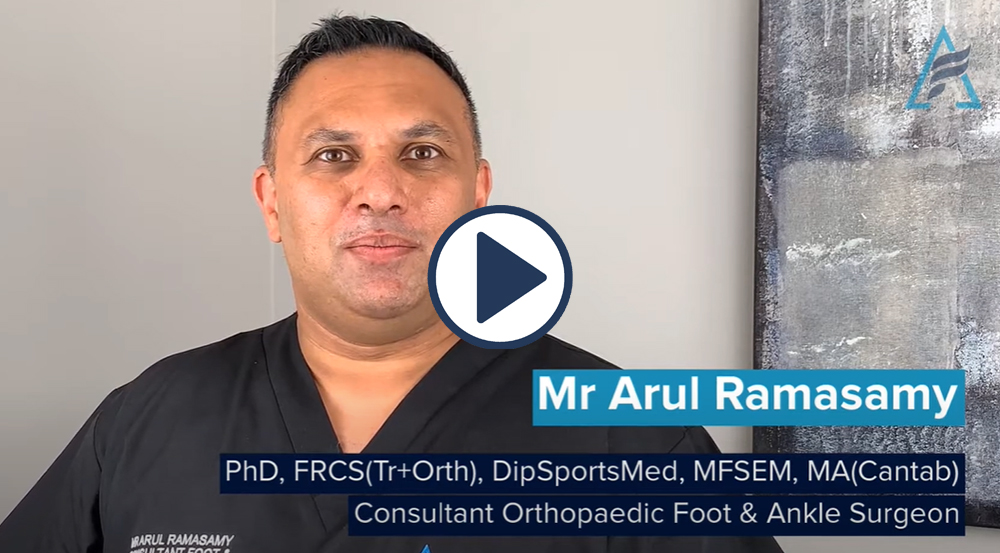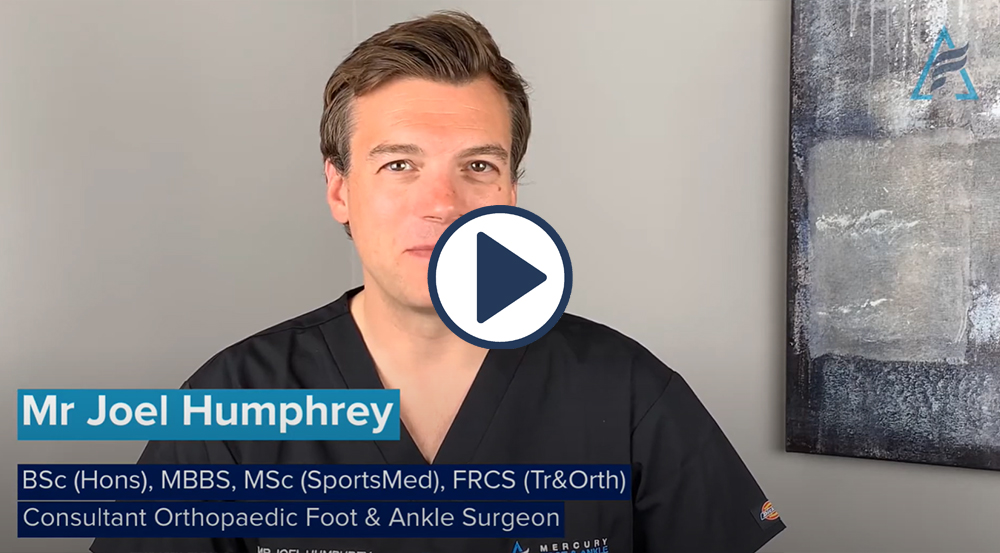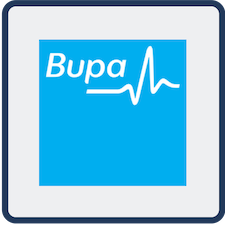Shockwave Therapy

What is Achilles tendinopathy?
Achilles tendinopathy is a common condition when the tendon undergoes degenerative changes, in response to repetitive small tears (microtrauma) to the tendon, that do not completely heal after each injury. The Achilles tendon is a large tendon that joins the heel bone (calcaneum) to the calf muscles (gastrocnemius and soleus).
What is plantar fasciitis?
Plantar fasciitis is a common foot condition caused by inflammation of the plantar fascia. The plantar fascia is a thick fibrous band of tissue connecting the heel to the ball of the foot and plays a vital role in supporting the arch of the foot.
What is shockwave therapy?
Shockwave therapy is a treatment for recalcitrant Achilles tendinopathy and plantar fasciitis. It is a non-invasive procedure that delivers shockwaves to the symptomatic area of the foot (Achilles tendon or plantar fascia). The shockwaves are low energy audible sound waves (not electric waves), that increase the blood flow to speed up the body’s healing process. Extracorporeal means outside of the body and refers to the way the shockwaves are delivered.
What does shockwave therapy involve?
The procedure is performed in the out-patient department by a doctor, physiotherapist or specialist nurse. A handheld device is used to deliver shock waves through applied ultrasound gel and the skin to the symptomatic area of the foot.
Most patients do experience discomfort or pain during the procedure. We can tailor the number of shocks and strength of the shock to make it manageable for you. Each procedure lasts approximately five minutes and can be quite noisy.
The exact number of procedures required depends on a patient’s individual progress. A course though usually entails three to six procedures. Each procedure is performed seven to 10 days apart.
What happens after shockwave therapy?
After the procedure patients can walk straight away and return to normal daily activities but should refrain from any strenuous or high impact activity for 48 hours.
If you experience some discomfort after the procedure, rest and simple pain-relieving medication (such as paracetamol) are advised. However, do not take any anti-inflammatory medications such as Ibuprofen or Nurofen as these will interfere with the healing process.
Any sudden pain or loss of function requires urgent medical attention.
Who should have shockwave therapy?
Shockwave therapy is offered to patients who have not responded well to other non-operative treatments, such as physiotherapy, orthotics (medical insoles), activity modifications and pain-relieving medications. Shockwave therapy should be performed in conjunction with an Achilles tendon and calf muscle strengthening programme to improve outcomes.
What are the risks and side effects of shockwave therapy?
Shockwave therapy is a non-invasive procedure and is considered safe. However, after the procedure some patients can experience some transient pain, redness, bruising, swelling and numbness to the treated area. There is a small risk of an Achilles tendon or plantar fascia rupture.
When should shockwave therapy not be performed?
Shockwave therapy should not be performed in patients who-
are pregnant
are under the age of 18
have an infection in the foot
are taking antiplatelet medication (such as clopidogrel, excluding aspirin)
are taking anticoagulant medication (such as warfarin, rivaroxaban)
have a blood clotting disorder (such as thrombosis or haemophilia)
have been diagnosed with bone cancer
have a history of Achilles tendon or plantar fascia rupture
have had a steroid injection into the treatment area in the last 12 weeks
Wellbeing Advice
Patients that have a healthy diet, take regular exercise and refrain from smoking are more likely to experience a quicker recovery with a more successful outcome from their surgery.
If you have any concerns about your general health and well-being (diet, exercise, smoking cessation) you are encouraged to discuss this with your GP, who will be able to provide advice on the options available to you.
We hope this leaflet has answered any questions you might have. If you have any further queries, please feel free to discuss them with any of the medical or nursing staff.
Testimonials

My condition had deteriorated to the point that I was unable to walk for extended periods of time without pain and swelling of the ankle, and I would rarely be able to join in most family activities. The support and guidance provided by Mr Ramasamy were exemplary and enabled me to make a fully informed decision regarding the options available to me. Now, the pain is much more manageable and the stability that the treatment has provided is such that I feel that I regained a significant part of my life and as such my confidence.
I found Mr Ramasamy extremely professional and reassuring. On the day of my procedure I received the most efficient, organised and professional care in my life. Your nurses were the best I have ever experienced. Mr Ramasamy’s team, in theatre made me feel at ease and made the whole procedure more bearable. They go way beyond the extra mile for their patients.
I wanted to share my excellent experiences and compliment Mr Ramasamy and his team. I found him extremely professional and reassured that he understood how much pain I was in. On the day of my procedure, it was the most efficient, organized and professional care I have ever received – from checking into reception to being allocated a bay and taken into theatre – your nurses in the recovery area were the best I have ever received. Mr Ramasay’s team, especially in theatre, made me feel at ease, kept me informed throughout the whole procedure and made the whole procedure more bearable.
Send Us A Message

If you have a question or want to reach out to us directly, use the contact form below and send us a message.








